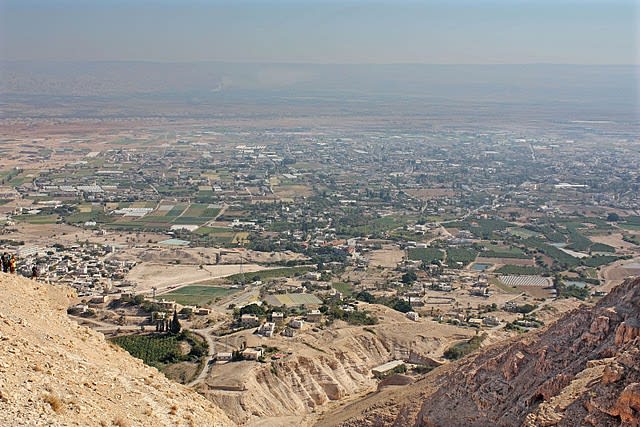The Coming Week’s Daf Yomi by Rabbi Adin Steinsaltz
This essay is based upon the insights and chidushim (original ideas) of Talmudic scholar Rabbi Adin Steinsaltz, as published in the Hebrew version of the Steinsaltz Edition of the Talmud.
Sanhedrin 112a-b – Tithes and taxes
The “taxes” paid by your average farmer during Temple times went largely to the mikdash – the Temple – itself and to the people – kohanim and Levi’im – who worked there. The major matanot (literally “presents” but effectively taxes) included:
- Bikurim: the first fruits of the harvest that are brought to the Temple and given to the kohanim
- Terumah gedolah: a portion of the harvest given to the kohen. He can use it in his home for normal purposes, but it must be treated as kodshim, preserved (when possible) in a state of ritual purity, only consumed by kohanim, etc.
- Ma’aser rishon: a portion of the harvest given to the levi. It has no kedusha, or holiness, attached to it and it can be used for any purpose.
- Ma’aser sheni: a portion of the harvest that is taken by its owner to Jerusalem, where he can eat it on his own or give it to others, but it must be kept in a state of ritual purity and only eaten within the precincts of the city.
Our Gemara discusses the laws of ma’aser sheni, which was separated by the farmer in four out of the seven years of the agricultural cycle – during years 1, 2, 4 and 5. (In years 3 and 6 it was replaced with a tithe given to the poor; in year 7 – the Sabbatical year – no tithes were separated.) We learn that according to Rabbi Meir, dough made of ma’aser sheni flour will be free of the obligation to separate challah – a portion of dough that is separated and given to the kohen – while the other Sages obligate him to separate challah. This argument points to a basic disagreement about such tithes. According to Rabbi Meir ma’aser sheni is mammon gavoha – it is sanctified property that a person is allowed to eat under specific circumstances. As such, no other tithes need to be separated from it. The Sages, however, believe that it is mammon hedyot – it remains the property of the owner – although the Torah requires that it be eaten only in a specific place and under certain conditions.
Sanhedrin 113a-b – The fall and rise of Jericho
When the Children of Israel entered the Land of Israel after 40 years in the desert, the first city that they encountered and conquered was Yericho (see Sefer Yehoshua chapter 6). Having defeated this first Canaanite city, Yehoshua declared that the city was to remain a symbol, and no one could rebuild it, cursing anyone who tried to do so with the death of his children (Yehoshua 6:26).
In fact, the navi later relates that there was a later attempt to reestablish the city of Yericho. In Sefer I Melakhim, or Kings (16:34) we find that in the time of King Achav a man named Chi’el Bet-ha-Eli built the city of Yericho, and that when he began his oldest child, Aviram passed away and when he completed the city his youngest son, Seguv, died as well.
It is interesting to note that the Gemara assumes that the city built by Chi’el Bet-ha-Eli was not built on the ruins of the original city of Yericho, rather that he built a different city, giving it that name. According to the Gemara, Yehoshua’s original curse included both a situation where the destroyed city would be rebuilt with another name, or a situation where another city would be built that would be called by the name of Yericho. The Talmud Yerushalmi explains that the Yericho built by Chi’el could not have been the original city, since Chi’el was living under the rule of King Achav in the Northern Kingdom of Israel, while the original city of Yericho was located in the Southern Kingdom of Yehuda.
The entrance of Israel into the Land of Canaan was not merely the capture of land from the local tribes, rather it was a total rejection of the values and mores of a Canaanite culture that celebrated cultic religious beliefs that included the murder of children to the god Molech and ritualistic sexual harlotry in the service of the god Ba’al. The destruction of the city of Yericho and the oath to leave the city in a state of ruin aimed to symbolize the aim of the Israelites to uproot these pagan practices. With the reestablishment of Canaanite rituals by King Achav, it appears that Chi’el Bet-ha-Eli wanted to reject that symbolism by rebuilding the original Canaanite city.
In addition to his monumental translation and commentary on the Talmud, Rabbi Steinsaltz has authored dozens of books and hundreds of articles on a variety of topics, both Jewish and secular. For more information about Rabbi Steinsaltz’s groundbreaking work in Jewish education, visit www.steinsaltz.org or contact the Aleph Society at 212-840-1166.
The words of this author reflect his/her own opinions and do not necessarily represent the official position of the Orthodox Union.

